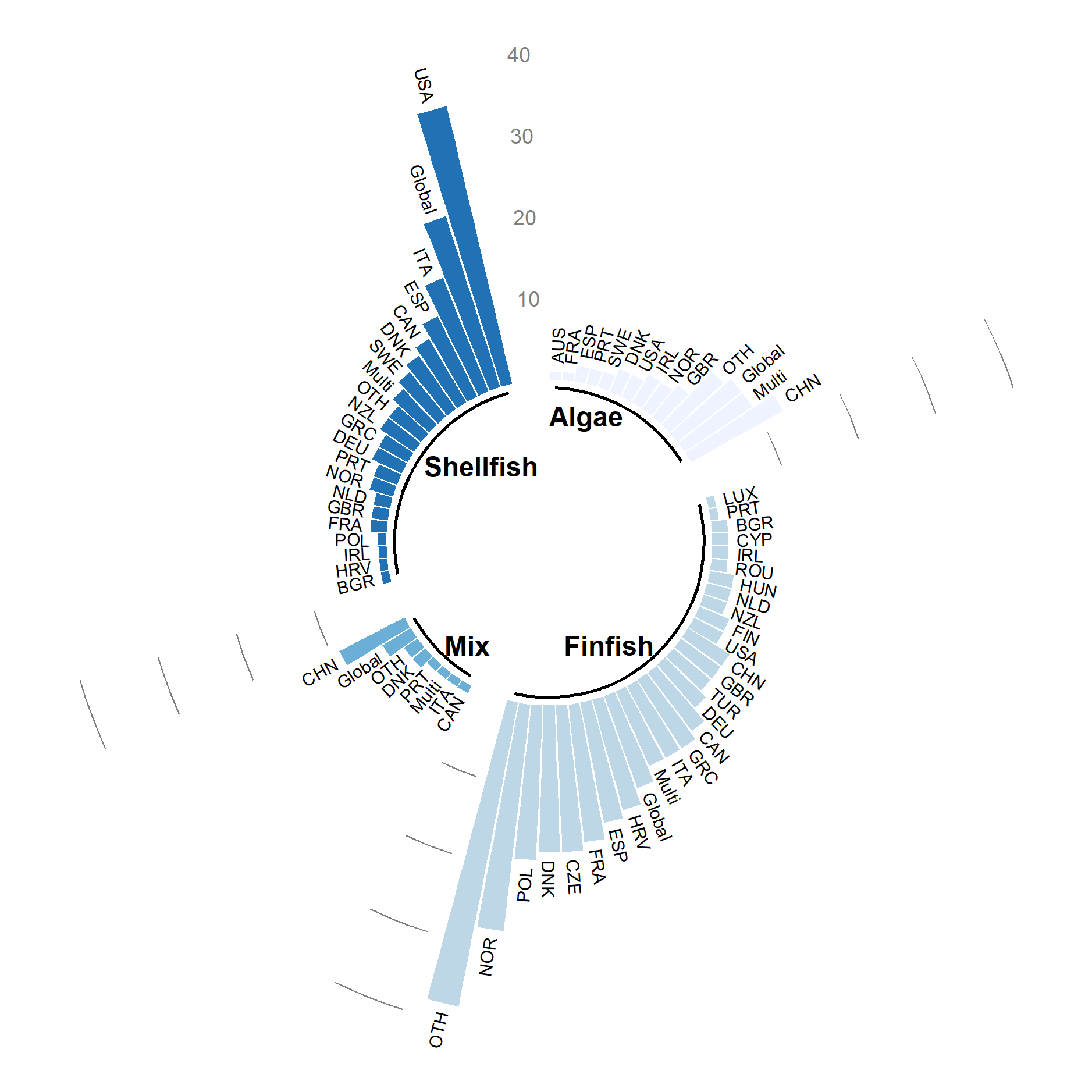Aquaculture is one of the world’s fastest-growing industries and is an increasingly important component of the global food production, but European aquaculture has not kept pace. Public perception of aquaculture in Europe may be a contributing factor. MRAG and partners were contracted by the European Commission to examine the scientific basis of the economic, environmental and social impacts of European aquaculture. To do so, an exhaustive review of the scientific literature, interviews with stakeholders across various case study aquaculture technologies and species, and an exploration of the national regulatory framework and impact mitigation measures were conducted across the Europe.
Finfish aquaculture has received the greatest attention, followed by shellfish, and algae. While impacts vary among technologies, scales, and geographies, positive impacts were generally socio-economic and include improved employment, food security, health, and nutrition. Conversely, negative impacts are mainly environmental, particularly the potential to weaken wild stocks through genetic introgression; create resistant parasites, bacteria and viruses because of pesticide, chemical, and medicine use; alter ecosystems and community structure because of organic enrichment from effluent discharge; and possible animal welfare issues in some cases.
Concurrently, the regulatory framework and mitigation measures employed to reduce the environmental impacts of aquaculture in the EU are diverse and extremely complex. It includes a wide range of instruments adopted at the EU level, as well as Member State legislation, and site-specific measures contained in site-specific licence conditions. Further, aquaculture is subject to a much broader legal framework that addresses diverse matters such as land-use planning/development, coastal zone management, health and safety issues, and many more. Overall, the regulatory framework is considered to be effective in mitigating many of the negative environmental and social impacts, although there are areas where there is still margin for improvement. Specifically, concerns remain around the regulation of impacts on animal welfare and of the framework surrounding the aquaculture of algae.
While some concerns remain around the negative impacts across production systems, the positive impacts derived from aquaculture and the comprehensive regulatory framework surrounding it must be acknowledged. However, future growth of the European aquaculture sector must coincide with continued research, monitoring, technological innovation, and mitigation to counteract emerging or existing negative impacts, supported by a regulatory framework that encourages the development of lower-impact production processes for finfish, bivalves and algae. Parallel to this, given that public perception of aquaculture does not match the evidence, open and transparent communication around aquaculture should be considered a priority to dispel ‘myths’ whilst clearly acknowledging the pitfalls.

